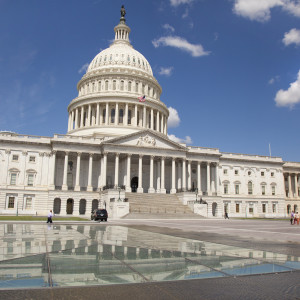Republican lawmakers are urging the Federal Communications Commission to insulate America’s smallest Internet service providers from its new net neutrality rules, scheduled to put the same regulations that govern AT&T, Verizon and others over small broadband carriers next month.
“As the chief counsel for advocacy at the Small Business Administration (SBA) has pointed out, ‘[s]mall business participation in the service of broadband is vitally important for achieving the goal of greater consumer access and choice,'” Republicans led by House Energy and Commerce Committee Chairman Fred Upton and Communications and Technology Subcommittee Chairman Greg Walden wrote to the FCC over the weekend.
“As the commission learned from the record leading up to its issuance of the Open Internet Order, the enhanced transparency requirements jeopardize the ability of small Internet service providers (ISPs) to offer broadband services to our constituents, and to deploy faster and more sophisticated broadband networks,” the letter, signed by 33 other representatives, reads.
When the FCC passed its net neutrality rules in February, adopting public utility telephone-style regulations over ISPs and banning blocking, throttling and paid prioritization, the agency gave ISPs with 100,000 or fewer subscribers a temporary exemption from the rules after many submitted comments highlighting concerns about the legal cost of complying with the order.
That exemption expires Dec. 15, prompting lawmakers to push the FCC to make the exemption permanent for ISPs with 1,500 employees or fewer and ISPs with 500,000 or fewer subscribers. Under the SBA’s definition, telecommunications providers with 1,500 or fewer employees are classified as small, as are wireless providers with 500,000 or fewer subscribers according to the FCC’s own definition.
Many of the U.S.’s smallest broadband providers offer only wireless service to accommodate rural customers in small communities lacking wireline infrastructure.
“Small ISPs do not have the resources necessary for compliance with the enhanced transparency requirements, and the FCC should provide a permanent exemption from such requirements for any ISP” meeting the SBA and FCC small business standards.
In May FCC Commissioner Ajit Pai, who voted against the rules along with his only fellow Republican dissenter, Commissioner Michael O’Rielly, highlighted the plight of several small providers, many of whom said they would be forced to scale back or do away with plans to expand their networks and services in place of projected legal fees to ensure they’re complying with the regulations.
“Today there are thousands of smaller Internet service providers — wireless Internet service providers (WISPs), small-town cable operators, municipal broadband providers, electric cooperatives, and others — that don’t have the means or the margins to withstand a regulatory onslaught,” Pai said.
Among them were KWISP Internet, which at the time served 475 customers in rural northern Illinois, SCS Broadband, serving 800 customers in rural Virginia as of May and Joink LLC, which served 2,500 customers in and around Terre Haute, Indiana, according to the statement earlier this summer.
KWISP said even a small lawsuit brought under the rules could divert enough cash from the two-employee company’s annual revenue to “close the business,” while SCS has already been told by investors that “projects that were viable investments under the regime that existed before the order will no longer provide the necessary returns to justify the investment.”
Joink said it was foregoing a plan to explore rolling out fiber to homes in the face of “potentially crippling litigation expenses” — a sentiment echoed in the comments of every small provider, all of whom said they were downsizing or canceling expansion plans over potential litigation, compliance costs and uncertainty until ISPs see how the FCC plans to enforce the rules.
“Smaller, rural competitors will be disproportionately affected, and the FCC’s decision will diminish competition — the best guarantor of consumer welfare.”
House Republicans agreed, adding that many of those smaller providers are the only service option for many small businesses across the U.S.
“Given the stakes for America’s small businesses, the FCC was right to exercise caution and grant the temporary exemption,” the lawmakers wrote. “Now is the time to recognize the disproportionate impact that the requirements would have on these ISPs and their customers and make the exemption permanent.”
The exemption isn’t the only ISP regulatory gray area awaiting an imminent decision before the FCC. The agency is quickly approaching the deadline to hear final comments on potential new regulations for the “special access” broadband market — when larger providers like AT&T and Verizon rent their networks to smaller providers, mandated by the FCC to bolster market competition.
RELATED: Broadband Industry Asks FCC for More Time to Argue Business Broadband Regs
The latter have complained in recent years about larger providers forcing them into “lock-up” contracts with stiff rules and high rates. Commenters have until Jan. 6 to submit their opinions.
In less than two weeks the FCC and ISPs will present oral arguments before the D.C. Circuit Court of Appeals, which will decide whether the agency’s net neutrality rules, effective as of June, are legal.
RELATED: FCC’s Pai: Net Neutrality Court Challenge ‘A Complete Crapshoot’

